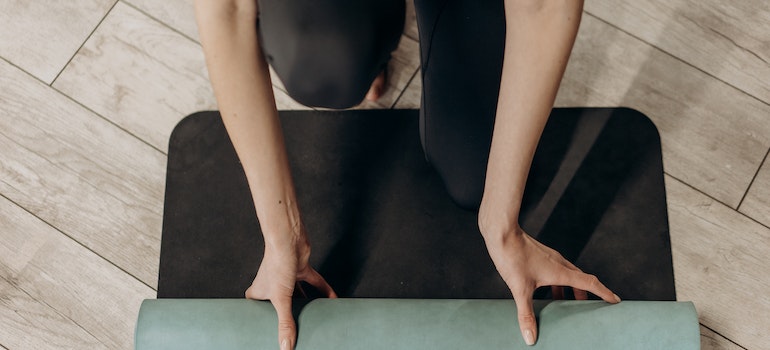Sleep is a fundamental aspect of our lives, essential for physical health, mental well-being, and overall quality of life. Yet, for many individuals, a restful night’s sleep remains elusive. It’s crucial to explore an effective and natural solution to this common problem: improving sleep quality through exercise. Emerging research has unveiled a profound connection between physical activity and the quality of our sleep. This connection goes beyond the intuitive understanding that a tired body tends to sleep better. FitForce UAE explores the scientific intricacies of how exercise influences our sleep patterns, circadian rhythms, and the release of sleep-related hormones. Understanding this fascinating relationship and learning how incorporating regular exercise into your daily routine leads to improved sleep quality and, ultimately, a more fulfilling life.
Benefits of Quality Sleep
Quality sleep is a cornerstone of overall well-being, offering a multitude of benefits that extend far beyond simply feeling rested. From bolstering physical health to boosting mental acuity, the advantages of consistently experiencing high-quality slumber cannot be overstated.

First and foremost, quality sleep is a linchpin for optimal physical health. During deep sleep cycles, the body undergoes essential repairs and maintenance, helping to strengthen the immune system and regulate hormones. Research has shown that individuals who consistently get enough sleep are at a reduced risk of chronic illnesses such as heart disease, diabetes, and obesity.
In addition to its physical benefits, quality sleep has a profound impact on our mood, cognitive function, and physical performance. A good night’s sleep can brighten our outlook, enhance our decision-making abilities, and sharpen our problem-solving skills. It also plays a pivotal role in regulating mood, helping to reduce stress and anxiety levels. For athletes and individuals engaged in physical activities, sleep is a secret weapon for improving endurance, reaction time, and overall performance.
Timing of Exercise for Improved Sleep Quality
The timing of exercise can significantly impact the quality of your sleep. Engaging in physical activity at different times of the day can either enhance or disrupt your sleep patterns.
Morning workouts, for instance, help kickstart your circadian rhythm, promoting alertness during the day and potentially deeper sleep at night. Afternoon workouts offer a similar advantage, but be cautious not to exercise too close to bedtime, as it may lead to heightened alertness that interferes with falling asleep. Evening workouts, on the other hand, should be scheduled at least a few hours before bedtime, allowing your body temperature and adrenaline levels to return to normal.

Exercise Duration and Intensity for Optimal Sleep Enhancement
When it comes to using exercise as a tool to improve sleep quality, striking the right balance of duration and intensity is crucial. Not all workouts are created equal, and tailoring your exercise routine to suit your fitness level and sleep goals can yield the most significant benefits.
Here is what we recommend:
- Duration: Aim for at least 150 minutes of moderate-intensity aerobic activity or 75 minutes of vigorous-intensity aerobic activity per week. This is what the American Heart Association recommends as well.
- Intensity: Moderate-intensity activities like brisk walking or leisurely cycling should make you slightly out of breath but still able to hold a conversation. For vigorous-intensity exercises, such as running or high-intensity interval training (HIIT), you should find it challenging to talk during the activity.
Exercise Duration and Intensity for Different Fitness Levels
Beginners and more experienced gymgoers and fitness enthusiasts have different needs and abilities. Here are our tips:
- Beginners: Start slowly and gradually increase exercise duration and intensity. Consider light activities like walking, swimming, or gentle yoga. Aim for at least 30 minutes of exercise most days of the week. Prioritize consistency over intensity.
- Advanced exercisers: Incorporate high-intensity workouts like HIIT or weightlifting. Ensure a balanced routine that includes both aerobic and strength training. Challenge yourself with longer and more intense workouts. Allow time for recovery to prevent overtraining, which can negatively affect sleep.
Types of Exercise for Better Sleep
If you’re looking to optimize your sleep quality through exercise, consider incorporating aerobic activities, strength training, and yoga exercises into your routine.
Also, consider working with a personal trainer for the best results. You can discuss your needs and goals with them and present your sleeping issues, and they will offer you some effective sleep-enhancing workout plans. These exercises can be performed at home or in a gym setting, making it accessible to everyone.

Yoga for Relaxation and Improving Sleep Quality Through Exercise
Yoga is a fantastic way to unwind and prepare your body for restful sleep. Try this routine:
- Child’s pose: 2 minutes
- Cat-cow stretch: 1 minute
- Downward-facing dog: 2 minutes
- Legs up the wall pose: 5 minutes
- Savasana (corpse pose): 5 minutes
Cardiovascular Workout
Cardio exercises get your heart rate up and promote better sleep. Try this indoor routine:
- Jumping jacks: 3 minutes
- High knees: 2 minutes
- Running in place: 3 minutes
- Burpees: 2 minutes
- Cool down with stretching: 5 minutes
Bodyweight Exercises for Strength
These exercises require no equipment:
Push-ups: 3 sets of 10
Bodyweight squats: 3 sets of 15
Planks: 3 sets of 30 seconds
Gym-Based Strength Training
For those with gym access, strength and muscle building training can improve sleep. Try this routine:
- Bench press: 3 sets of 8-10
- Leg press: 3 sets of 10-12
- Lat pull-downs: 3 sets of 8-10
- Bicep curls: 3 sets of 12-15
Improving Sleep Quality Through Exercise and Sleep Hygiene
Sleep hygiene practices are a set of habits and behaviors that promote good quality sleep, help prevent sleep problems or insomnia, and are necessary alongside exercise.
Here’s what it involves:
- Consistent sleep schedule – Go to bed and wake up at the same time every day, even on weekends. This helps regulate your body’s internal clock.
- Relaxing bedtime routine – This might include reading, taking a warm bath, or practicing relaxation techniques like deep breathing.
- Optimized sleep environment – Keep the room dark, quiet, and at a comfortable temperature. Invest in a comfortable mattress and pillows.
- Limited screen time – Avoid electronic devices with screens (phones, tablets, computers) at least an hour before bedtime. The blue light emitted by screens can interfere with your sleep-wake cycle.
- Balanced diet – Avoid large meals, caffeine, and alcohol close to bedtime. These can disrupt sleep patterns and affect the quality of your sleep.
- Stress management – Practice stress-reduction and mindfulness techniques such as meditation, yoga, or progressive muscle relaxation to calm your mind before sleep.
- Limited naps – If you need to nap during the day, keep it short (20-30 minutes) and avoid late afternoon or evening naps, which can interfere with nighttime sleep.
- Lower liquid intake – Reduce your fluid intake before bedtime to minimize nighttime awakenings for bathroom trips.
- Pain and discomfort management – This may involve using pillows or supports for specific conditions.
- No clock watching – If you wake up in the middle of the night, avoid constantly checking the clock, as this can increase anxiety and make it harder to fall back asleep.
- Exposure to natural light – Spend time outdoors during daylight hours to help regulate your body’s natural sleep-wake cycle.

Achieving Sounder Sleep Through Exercise
In the quest for better sleep and overall well-being, remember that you hold the power to make positive changes in your life. The relationship between exercise and quality sleep is a remarkable one, offering you the chance to unlock the benefits of restful slumber.
Quality sleep isn’t just about feeling rested; it’s about nurturing your physical health, enhancing cognitive function, and fortifying your emotional resilience. It’s a cornerstone of your overall wellness.
Whether you’re beginning your fitness journey or advancing to new heights, tailor your exercise routine to suit your needs and goals. Embrace the joy of movement, whether it’s yoga, cardiovascular workouts, bodyweight exercises, or strength training. Listen to your body and stay committed to a routine that works for you. And if you need help, contact FitForce UAE. Our fitness coaches all over the United Arab Emirates will help you get in the best shape of your life and feel great overall.
Every small step you take is a stride toward a brighter, more energized tomorrow. Embrace this journey of improving sleep quality through exercise, celebrate your achievements, and remember that a good night’s sleep is not just a dream—it’s within your grasp. Keep moving forward, and may each night be a step closer to the refreshing sleep you deserve.

